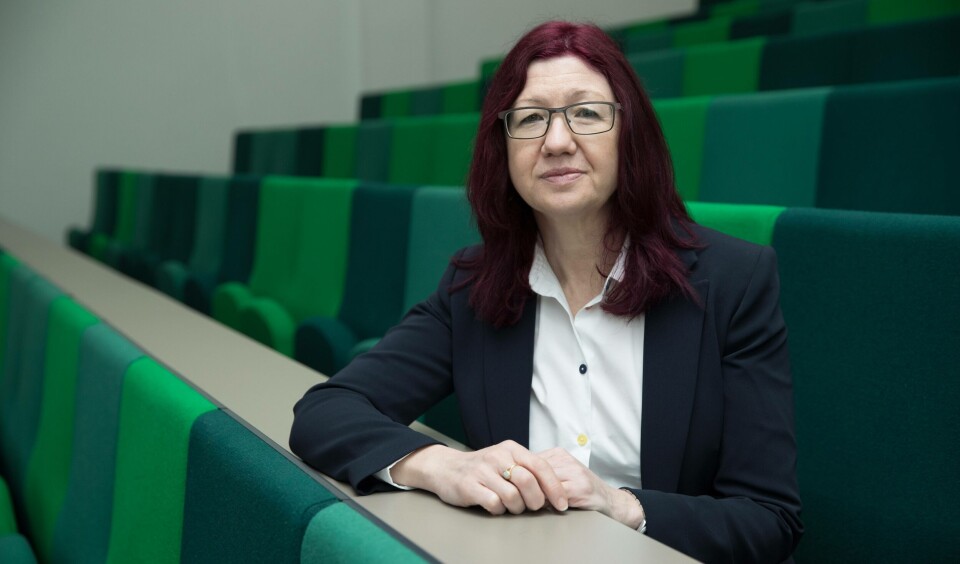
Top scientist named as head of Institute of Aquaculture
Award-winning marine biologist Professor Selina Stead has been named as the new head of the University of Stirling’s Institute of Aquaculture.
Stead, whose roles include the UK government’s chief scientific advisor for the Marine Management Organisation, will take up her role on March 1.
Her appointment follows last year’s announcement of £17 million in City Region Deal funding for a new aquaculture facility at the campus.
Privileged and honoured
“Ever since I was a PhD student Stirling has always had that reputation as one of the best in the world, so I felt really privileged and honoured to be approached,” said Stead, who was headhunted for the job.
“Joining the University of Stirling as head of the Institute of Aquaculture is a once-in-a-lifetime opportunity that will allow me to work with staff, students and alumni, the wider University community, industry and government representatives to further enhance the centre’s outstanding reputation as a global leader in aquaculture.
“Universities are funded to support the community and we need to focus on what we, as a University, can do to support aquaculture at local, national, regional and international levels. The funding through the City Region Deal provides the perfect opportunity for Stirling to continue its work in this area.”
Active in the field
Stead, whose research specialises in international sustainable development of seas and oceans, joins Stirling from Newcastle University where she is dean, public orator and Professor of Marine Governance and Environmental Science. She remains active in field-based academic work in East Africa and the Indian Ocean, publishing widely on marine ecosystems and human interactions.
She has held numerous high-profile positions and was chair of the Scottish Government’s Marine Science Advisory Board from 2013 to 2017.
Stead is also a former President of the European Aquaculture Society, receiving the organisation’s Distinguished Services Award in 2016 for her notable contributions to fisheries, aquaculture, marine protected areas, integrated coastal management, and marine governance.
‘So much we can share’
The new IoA chief is a keen advocate for aquaculture in Scotland and globally, and believes the Institute can help share the story of Scotland’s successful fish farming industry internationally.
“I get asked so often ‘Tell us, what is the secret of the development of aquaculture in Scotland?’, she said.
“In some of the work I’ve been doing in East Africa, the status of some of their fisheries has really declined, and where that’s their main source of protein and you’ve got people where there aren’t other jobs, then aquaculture - not just as a food source but also as an export product - has suddenly become more and more popular.
“Looking at how Scotland has developed the sector and looking at different species and where to grow them and looking at the markets and how you take advantage, there’s so much we can share.”
Stead spent nearly 12 years studying and working at Aberdeen University, completing a PhD in Zoology there before taking a hands-on role by running its trout hatchery in her first post-doctorate position as aquaculture director.
“I’m by birth a Yorkshire lass but I do feel almost that I’m coming back home,” she said.
Stead pointed to the presence of the Scottish Aquaculture Innovation Centre on the Stirling campus as one of the many advantages she believes the IoA offers.
“I’m really, really keen on that whole idea of open innovation, because I find sometimes there is a tension about who should support research in aquaculture; is it industry, is it government, research funders? It actually needs to be a combination, so I’m very, very keen to try and push those stronger partnerships.
“The fact that SAIC are on the campus, hosted by Stirling, and with the university keen to encourage other businesses to be there, means you’ve got an amazing critical mass already to take advantage of, which really appeals to me.”
Research-led teaching
Stead said the IoA struck a good balance between teaching and research. “Where I’m really going to focus with colleagues is where the areas of excellence are – funding sometimes changes between the two. What I would say is that I do feel strongly is that research-led teaching is really important, because graduates have got to be equipped with the latest knowledge – that’s how you get really innovative thinking.”
She is also keen to draw upon other areas of expertise at the University, particularly business and social sciences, to help equip aquaculture students for the commercial side of their future careers.
Read more about Selina Stead’s plans for the Institute of Aquaculture in February’s edition of Fish Farming Expert magazine.























































